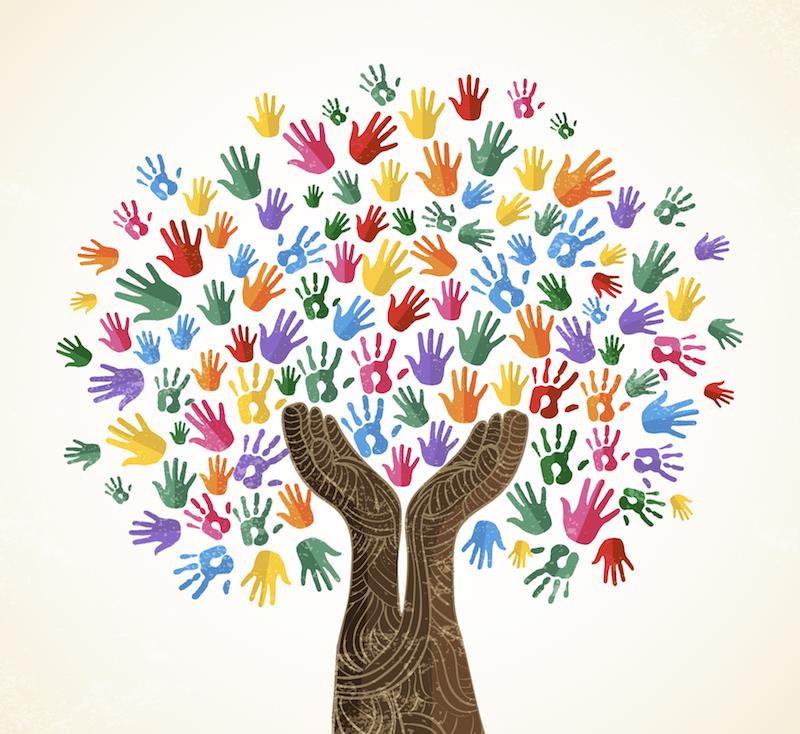Benefits of Diversity
In this article, we will explore the numerous benefits of diversity. Diversity refers to the inclusion of individuals from different backgrounds, cultures, and perspectives. It is an essential aspect of building a strong and thriving society, workplace, and community.
Enhanced Creativity and Innovation
Diversity fosters enhanced creativity and innovation. When people with different experiences, knowledge, and perspectives come together, they bring unique ideas and insights to the table. This diversity of thought sparks creativity and encourages innovative solutions to problems. By embracing diversity, organizations, and communities can tap into a wealth of ideas that can lead to breakthrough advancements.
Improved Problem Solving
Diverse teams are known to be better at problem-solving. When individuals with different backgrounds collaborate, they approach challenges from various angles. This diversity of perspectives enables a more comprehensive analysis of problems and the development of effective solutions. By embracing diversity, we can enhance our problem-solving capabilities and make better-informed decisions.
Increased Productivity
Diversity positively impacts productivity. When people from different backgrounds work together, they bring a wide range of skills, experiences, and expertise to the table. This diversity of skills can lead to increased efficiency and productivity within teams and organizations. By embracing diversity, we can leverage the strengths of each individual and create a more productive work environment.
Enhanced Learning and Growth
Diversity promotes enhanced learning and growth. When individuals from different backgrounds interact, they have the opportunity to learn from one another’s experiences and perspectives. This exposure to diverse viewpoints broadens our understanding, challenges our assumptions, and promotes personal and intellectual growth. By embracing diversity, we create an environment that fosters continuous learning and development.
Improved Global Perspective
Diversity provides an improved global perspective. In an increasingly interconnected world, understanding and appreciating different cultures and perspectives is crucial. By embracing diversity, we gain a broader understanding of global issues, develop cultural competence, and become better equipped to navigate the complexities of our globalized society. This global perspective is invaluable in fostering collaboration, empathy, and mutual respect.

Diversity brings a multitude of benefits to individuals, organizations, and communities. By embracing diversity, we can unlock enhanced creativity, improved problem-solving, increased productivity, enhanced learning and growth, and an improved global perspective. We must recognize and celebrate the value of diversity in all aspects of our lives to create a more inclusive and prosperous world.
Frequently Asked Questions – Benefits of Diversity
1. What is diversity?
Diversity refers to the variety of differences among individuals in terms of their backgrounds, experiences, perspectives, and characteristics.
2. Why is diversity important?
Diversity is important because it fosters creativity, innovation, and problem-solving. It brings different viewpoints and ideas to the table, leading to better decision-making and overall organizational performance.
3. How does diversity contribute to a positive work environment?
Diversity creates a positive work environment by promoting inclusivity, respect, and acceptance. It helps in reducing biases, stereotypes, and discrimination, leading to increased employee morale, satisfaction, and engagement.
4. What are the benefits of diversity in the workplace?
The benefits of diversity in the workplace include increased adaptability, improved global market understanding, enhanced customer service, higher employee retention, and a broader range of skills and perspectives.
5. How does diversity impact innovation and problem-solving?
Diversity fuels innovation and problem-solving by bringing together individuals with different experiences, knowledge, and perspectives. This diversity of thought leads to more creative ideas, alternative solutions, and better outcomes.
6. Does diversity lead to better decision-making?
Yes, diversity leads to better decision-making. When diverse individuals collaborate, they bring unique insights and alternative viewpoints that challenge the status quo, resulting in more informed and effective decision-making processes.
7. Can diversity improve business performance?
Absolutely. Studies have shown that diverse organizations outperform their homogeneous counterparts. Diversity brings together a wider range of talents, experiences, and perspectives, which leads to improved problem-solving, innovation, and overall business performance.
8. How does diversity contribute to employee learning and development?
Diversity contributes to employee learning and development by exposing individuals to different cultures, ideas, and perspectives. This exposure enhances their ability to adapt, learn from others, and develop a broader understanding of the world.
9. What role does diversity play in attracting and retaining top talent?
Diversity plays a significant role in attracting and retaining top talent. Inclusive and diverse workplaces are more appealing to job seekers who value a supportive and respectful environment. This leads to higher employee retention rates and a competitive advantage in attracting skilled professionals.
10. How can organizations promote diversity and inclusion?
Organizations can promote diversity and inclusion by implementing inclusive hiring practices, providing diversity training, fostering a culture of respect and acceptance, creating employee resource groups, and actively promoting diversity in leadership positions.




